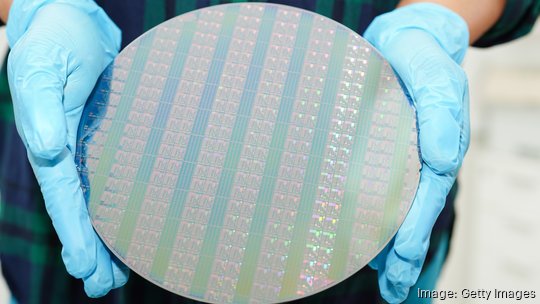My View: Setting the record straight on Arizona’s potential as a technology hub

As the Arizona technology ecosystem continues to evolve, it’s encouraging when those beyond our borders take interest in what we are doing. But when their interpretation is skewed, it’s time to call them on it.
I’m referring to a viewpoint titled “No Water, No Workers, No Chips” published recently in Foreign Policy and authored by leaders of Singapore-based Climate Alpha. According to its website, “With Covid and climate change heralding a fundamental reset in where and how people live and businesses operate, Climate Alpha is focused on adapting society and the economy to the new patterns of mobility and investment that lie ahead.”
For the column in Foreign Policy, the authors were focused on the impact of plans to ramp up semiconductor production here in Arizona. Specifically, they questioned whether we have the water, talent and supply chain to pull it off.
If there’s something I’ve learned in my years in Arizona, it’s never underestimate what we can do — together.
When it comes to water, let’s consider the plans for the company that has generated a lot of buzz with two fabs underway: TSMC. The Taiwan-based company’s site in the north Valley will include an industrial water reclamation plant that when operating will allow TSMC Arizona to achieve near zero liquid discharge.
This isn’t just a claim aimed at keeping critics at bay. Greater Phoenix Economic Council President and CEO Chris Camacho noted in a published report that about 90% of TSMC’s water at existing sites is recycled. That means don’t expect you tap to run dry when TSMC turns on its own.
Intel makes strides on water reusage
Over at Intel in Chandler, where fab construction in the East Valley will add to its long record of chip manufacturing, the company is getting closer to its global goal of returning and restoring more water than it uses to the community and the environment. Its new sites are being built to reach net positive water globally by 2030.
And what about the workers? Intel has a track record of putting people to work at its fabs here, so there’s nothing brand new about that.
It stands to reason that with TSMC coming online that there will be some competition for workers with the expertise needed to get the job done. To help keep the talent pool full, Arizona State University and TSMC recently announced a partnership agreement focused on training and recruitment, student support, and faculty work projects and research that will deepen the relationship between the company and the university.
“We have been working closely for a couple of years to carefully define what TSMC needs from ASU and how we can deliver on that for the company and for the greater Phoenix community,” said Grace O’Sullivan, vice president of corporate engagement for ASU and a member of the Arizona Technology Council board of directors. “There is a lot more work to do, but we are learning how best to collaborate and we have built a foundation for long-term success.”
This recent activity follows what has been happening for a while. Since 2020, TSMC has been recruiting talent across the country, with many of its earliest hires being ASU graduates who spent time training in Taiwan before returning to Phoenix.
Add to that Maricopa Community Colleges has partnered with semiconductor companies here to provide the Semiconductor Technician Quick Start training program that will qualify graduates to be considered for new careers with full-time employment and benefits.
And what about that supply chain? Companies specializing in semiconductor equipment, wafer fabrication, semiconductor supplies and packaging and testing already have set up shop or established branches here. No doubt they all would have not gambled millions of dollars to have a presence in Arizona if this all was a pipe dream.
Also, the Arizona Commerce Authority late last year joined semiconductor industry leaders and stakeholders to launch the National Semiconductor Economic Roadmap to boost U.S. semiconductor competitiveness through a focus on the workforce, supply chain and infrastructure to support semiconductor research and development, design, manufacturing and end-applications.
I, like most everyone here, relish the rest of the world hearing the story of where we are headed in Arizona. There is nothing to hide. But a more complete picture really needs to be shared.
Steven Zylstra is president and CEO of the Arizona Technology Council.
